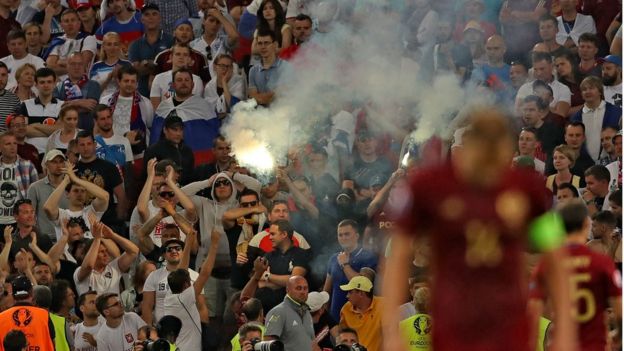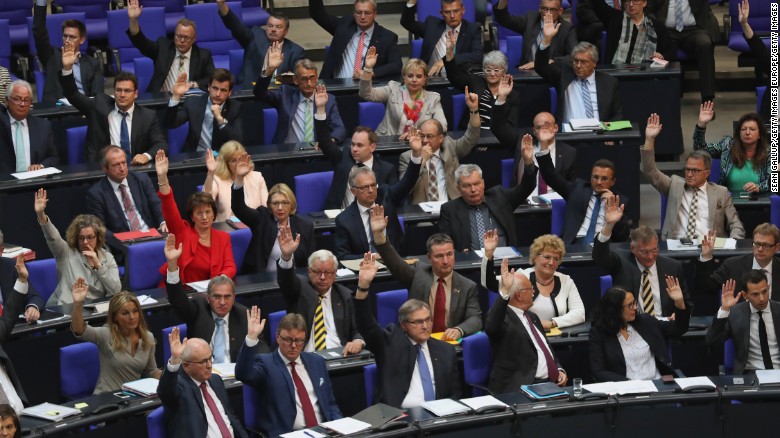By Sarah Lafen
Impunity Watch Desk Reporter, Europe
PARIS, France — This past week at the Euro 2016 championship football tournament in Marseille, France, English and Russian fans engaged in violent fights at a match between the two countries. After the match ended in a tied 1-1 score, Russian fans jumped over the barriers separating the two nations’ fans and swarmed the section where the British fans sat. Some Russians were equipped with fireworks and flares which were subsequently set off within the stadium. Witnesses stated that some attackers wore mouth guards and fighting gloves during the brawls.

According to Marseille’s emergency services, over 30 people were injured in the riots, including three police officers. As a result of the riots, multiple head wounds were sustained, a significant amount of blood was shed, one man was knocked unconscious, and another suffered a heart attack. Police used tear gas to break up the riots.
In anticipation of potential violent outbursts, France took extra security measures to prevent riots of this exact nature. The Minister of Interior denied 3,000 people entry to the country, based on lists of people banned from stadiums in different countries, on suspicions they would bring disruption to the national order of France. Bars in the Vieux-Port area of Marseille closed hours earlier than they normally do.
The Union of European Football Association (UEFA) has threatened to disqualify both England and Russia if these violent riots continue. UEFA has already begun taking disciplinary actions against the Russian Football Union, charging them with crowd disturbances, racist behavior, and for the use of fireworks within a stadium. A decision in regards to the sanctions will be made within a few days, once all evidence has been considered.
Both England and Russia have condemned the fighting. Russia displayed its support for the launch of an investigation into their participation in the riots, and the United Kingdom Government has offered to send British police to the England’s next match against Wales in Lens, France. Federation of International Football Associations (FIFA), the governing body of the sport, has also condemned the violence. FIFA released a statement calling the riots “wholly unacceptable.”
So far, 17 people have been arrested in connection with the riots.
For more information, please see:
BBC — Euro 2016: England and Russia Given Disqualification Warning — 12 June 2016
CNN — Euro 2016: Dozens Injured as Crowds of Rival Fans Brawl — 12 June 2016
CNN — Euro 2016: Russia, England Threatened with Disqualification Over Violence — 12 June 2016
The Guardian — Euro 2016: England and Russia Fans Clash Before and After Match — 12 June 2016
NY Times — Russia and England Fans Clash Repeatedly at European Championships — 11 June 2016


